
Thin section of biotite, amphibole and plagioclase geology
Texture of mare basalt 12002. Rounded and speckled phenocrysts of olivine and large elongate phenocryst of clinopyroxene. Groundmass contains intergrown plagioclase, pyroxene and ilmenite. Figure 18. Large melt inclusion trapped in olivine in 12002. The melt inclusion has crystallized to ilmenite and an intergrowth of plagioclase and pyroxene.

Thin section microscope photograph of plagioclase phenocrysts and... Download Scientific Diagram
Several videos of plagioclase in thin section, showing typical textures and optical characteristics. Supported by Boise State University and the US National Science Foundation. Key.

Plagioclase thin section Tectosilicates MicROCKScopic
Plagioclase, zoned, in a dacite porphyry. This grain appears quite homogeneous in plane light, without concentric zones of inclusions that are commonly seen elsewhere.. In this photo, the thin section was rotated to obscure twinning. Plane- and cross-polarized light views. Field width is 6 mm. 4.7.84H. Perthite from a metaluminous biotite.

Thinsection photographs of plagioclasebearing mylonites ETR13 and... Download Scientific Diagram
Plagioclase is a series of tectosilicate (framework silicate) minerals within the feldspar group. Rather than referring to a particular mineral with a specific chemical composition, plagioclase is a continuous solid solution series, more properly known as the plagioclase feldspar series.

Thin section images of the intact samples (PLG plagioclase; CPX... Download Scientific Diagram
Mineral analyses were targeted to span the full variability of plagioclase zoning in a given thin section, typically using transects. WDS maps were measured on a representative part of 9 selected thin sections using a 20 µm pixel size to map a total area of ≥ 100 mm 2 (≥ 250,000 pixels) with an analysis time of ~ 21 h per sample (10.
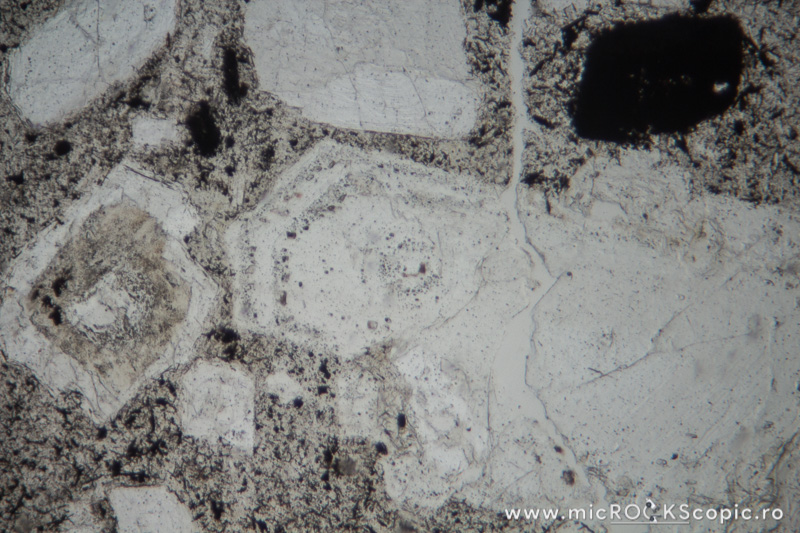
Plagioclase thin section Tectosilicates MicROCKScopic
Peace be upon Everyone. In this video, we are going to study Plagioclase Feldspar (Albite) in Thin Section under Microscope and Observe it's color, cleavage,.

Plagioclase thin section Tectosilicates MicROCKScopic
Feldspar classification This diagram shows how feldspar minerals are classified on the basis of their chemical composition. The sequence of minerals along the base of the triangle represents the solid solution series of plagioclase between albite and anorthite Plagioclase Feldspar Chemical Properties Plagioclase Feldspar Physical Properties
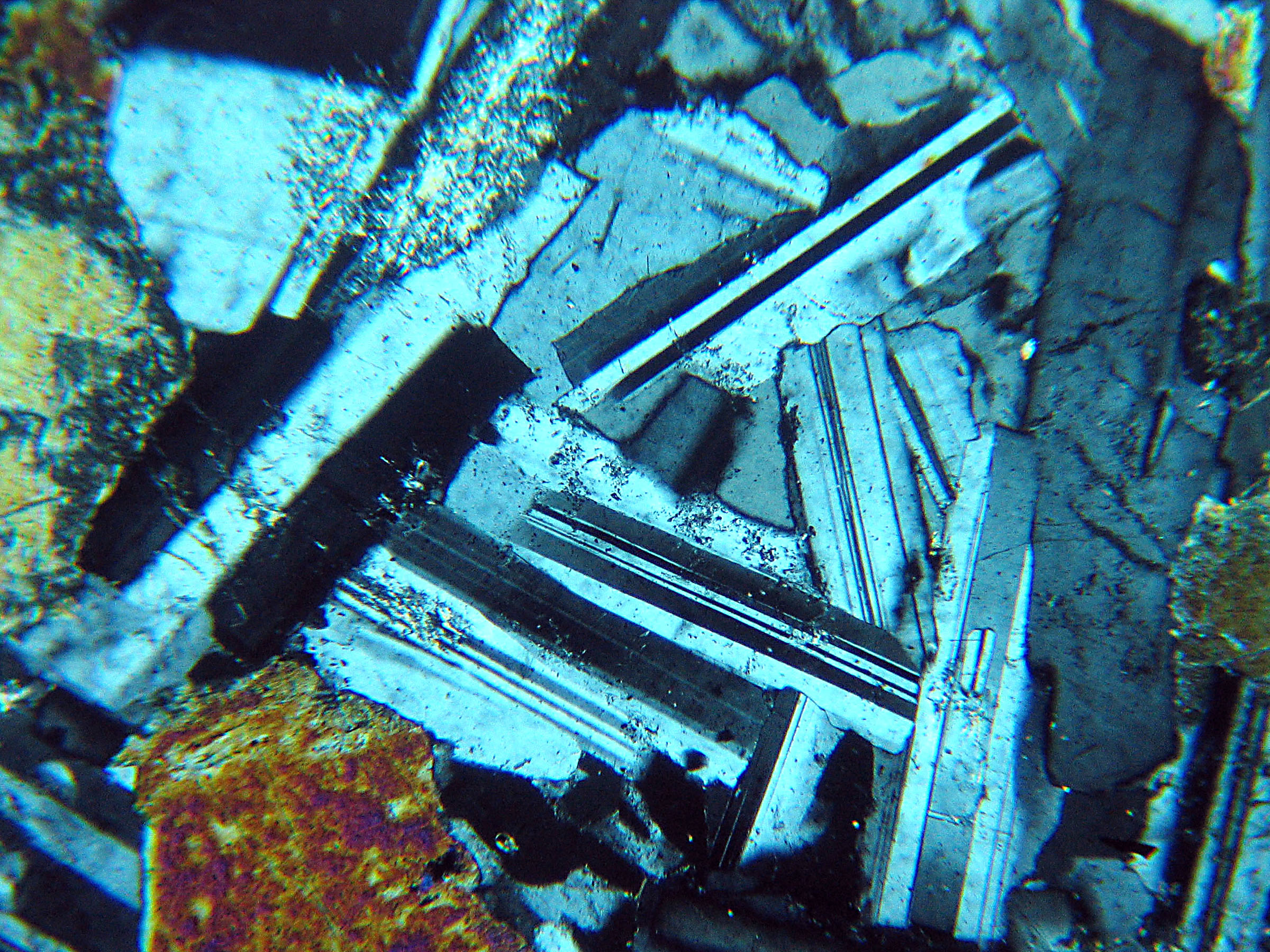
Plagioclase
In thin section, plagioclase commonly shows the characteristic albite polysynthetic twinning. This twinning is the most characteristic identifying feature of plagioclase, and makes its identification easy when present.

Plagioclase thin section Tectosilicates MicROCKScopic
Structure and chemistry Plagioclase feldspars are framework silicates with a structure similar to that of alkali feldspars. They show a network of (Si,Al)O 4 tetrahedrons linked to one another (sharing oxygens) in all directions, distorted by large cation sites that may contain Na +, Ca 2+, and some K +.

Basalt thin section
Name Pronunciation: Plagioclase + Pronunciation Plagioclase Image Images: Plagioclase Albite Comments: Colorless, lustrous blocky albite crystals to 3 cm in size with a thick dusting of micaceous green micro chlorite. Location: Acushnet Quarry, Bristol Co., Massachussetts, USA. Scale: 17 x 15 x 7.5 cm matrix. © Dan Weinrich Images:

Plagioclase thin section Tectosilicates MicROCKScopic
The orientation of plagioclase laths with respect to the thin section surface may also result in different apparent zoning profiles. In several chondrules, rare, fine-scale K-feldspar exsolution lamellae are observed in albite laths (Lewis, 2018).
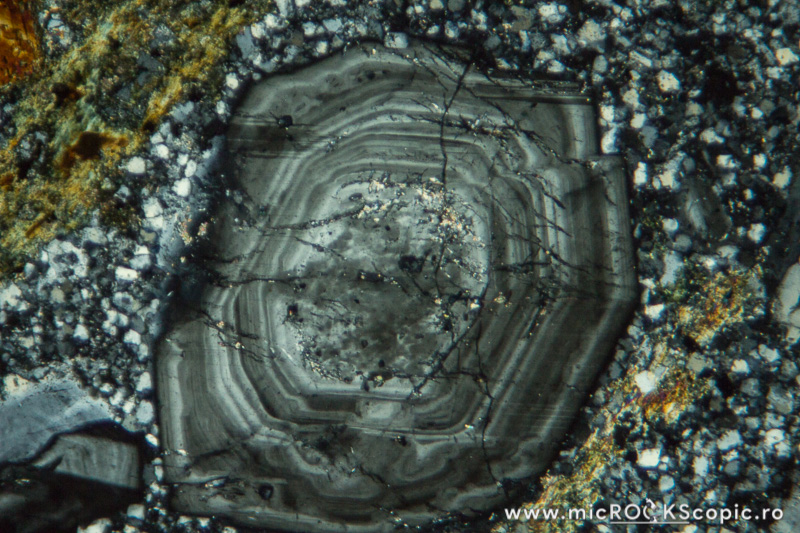
Plagioclase thin section Tectosilicates MicROCKScopic
The feldspar can be plagioclase or alkali feldspar, or both, depending on the kind of rock (Figure 16.1). But there are many varieties of these granitoids, varying mostly because they contain different minor minerals. Micas (biotite and sometimes muscovite), and amphiboles or pyroxenes of various sorts, are commonly present.
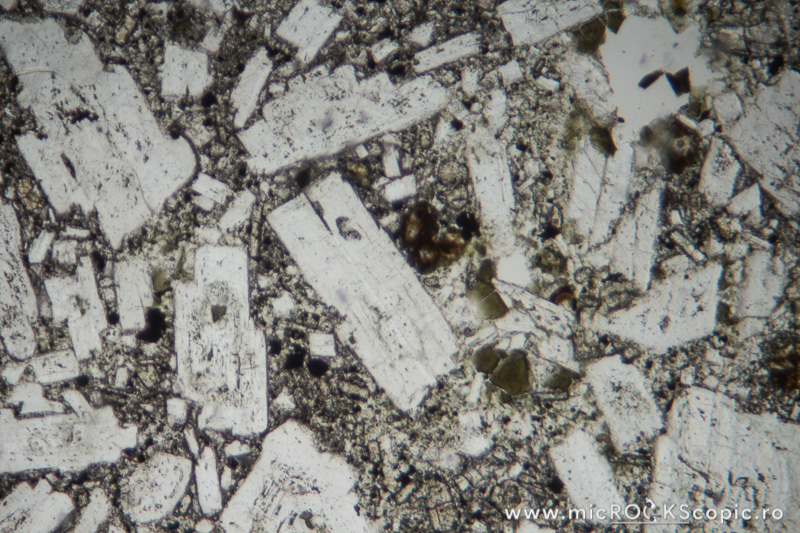
Plagioclase thin section Tectosilicates MicROCKScopic
Plagioclase: Property: Value: Comments: Formula:. (010) is also quite good. (110) is a very poor cleavage and is not usually seen in thin section. Cleavages intersect at about 93-94 degree angles. The cleavage may not be obvious in thin section; the best examples are often seen along the edge of the slide. Color/Pleochroism:

Twinning in Plagioclase; Thin Section in XPL YouTube
In thin section, plagioclase feldspar grains often look like they're sprinkled with dirt (PPL) or tiny confetti (XPL). You can find the explanation on the plagioclase feldspar page. Anorthite weathers quite readily, so it's not terribly abundant on Earth.

Plagioclase thin section Tectosilicates MicROCKScopic
Plagioclase Feldspar (thin section) Type. Mineral. Cleavage. Cleavages intersect at 93 °, usually not observed in thin section. Colour and Pleochroism. Colorless in thin section; Grains may appear cloudy due to alteration. Relief. Low negative or positive relief.
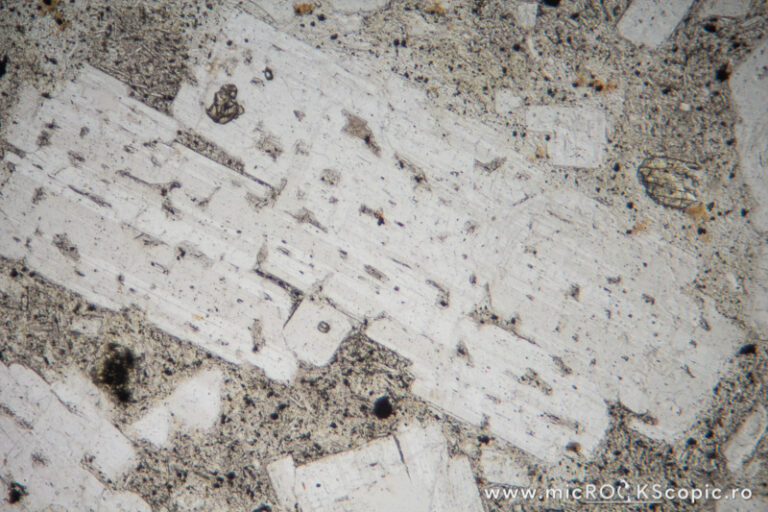
Plagioclase thin section Tectosilicates MicROCKScopic
PPL Plagioclase (polysynthetic twinning) #1 thin section (hFOV 2mm) GET 360° LIVE INTERACTION Plagioclase PPL properties Relief: Low-moderate negative/positive (Albite-Anorthite series) Habit/Form: Plagioclase commonly occurs both as euhedral and anhedral grains.